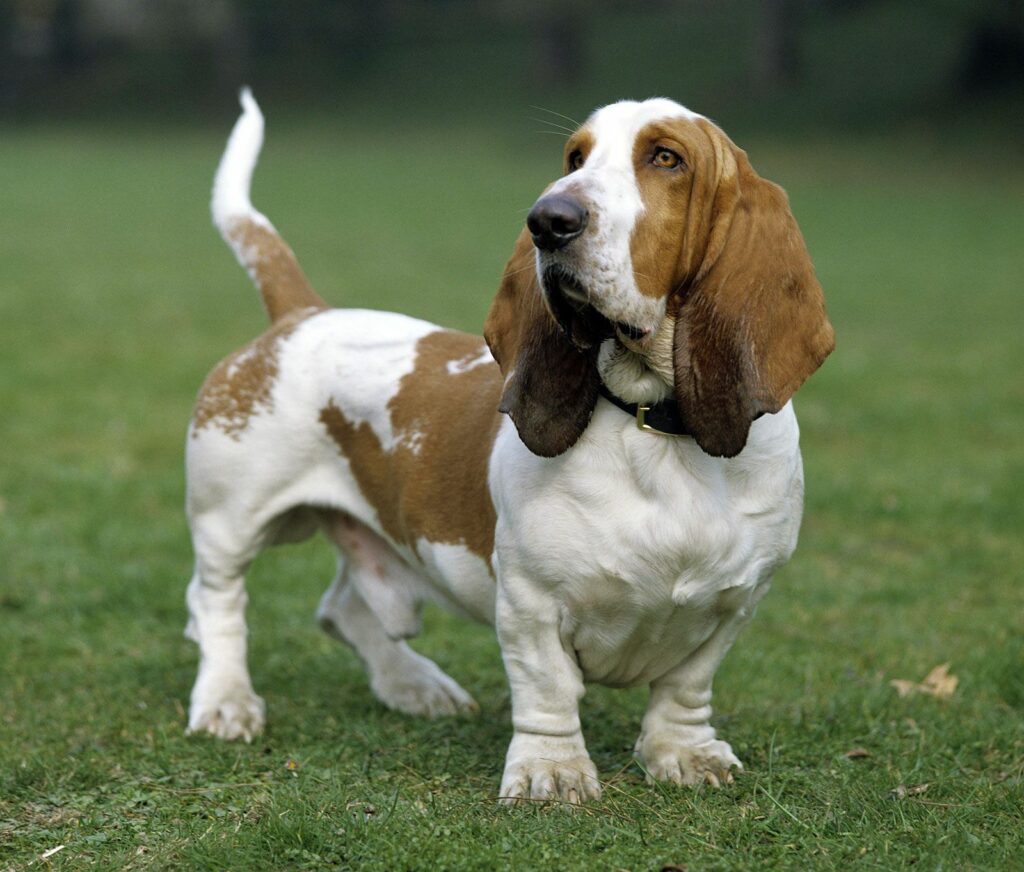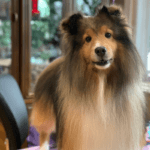Table of Contents
The Basset Hound, with its long ears and soulful eyes, is a breed beloved for its distinctive appearance and charming personality. Understanding the behavioral traits of the Basset Hound can help you provide better care and build a stronger bond with your canine companion. This guide explores the unique characteristics and behaviors that make Basset Hounds such endearing pets.

1. Strong Scent Tracking Ability
Basset Hounds have an exceptional sense of smell:
- Powerful Nose: Their sense of smell is second only to the Bloodhound, making them excellent scent trackers.
- Curiosity: They often follow their nose, which can lead them on adventures around the yard or house.
- Persistent Tracking: Once on a scent, Basset Hounds can be very determined and focused.
2. Gentle and Friendly Disposition
Basset Hounds are known for their gentle and friendly nature:
- Good with Families: They are great with children and other pets, making them ideal family dogs.
- Affectionate: Bassets love to cuddle and be close to their human companions.
- Patient: Their patient temperament makes them tolerant and understanding, even with young children.
3. Stubborn Streak
While lovable, Basset Hounds can be quite stubborn:
- Independent: They have an independent streak, often wanting to do things their own way.
- Training Challenges: Their stubbornness can make training a bit challenging, requiring patience and consistency.
- Motivated by Food: Using treats and positive reinforcement can help overcome their stubbornness during training.
4. Low Energy Levels
Basset Hounds are relatively low-energy dogs:
- Laid-Back: They enjoy lounging around the house and are often content with short walks.
- Moderate Exercise: While they do need regular exercise, they don’t require as much as high-energy breeds.
- Prone to Weight Gain: Due to their low energy levels, monitoring their diet and ensuring they get enough exercise is important to prevent obesity.
5. Vocal Nature
Basset Hounds are known for their vocal expressions:
- Distinctive Bark: They have a deep, loud bark that they use to communicate with their owners.
- Howling: Bassets are prone to howling, especially when they are bored or seeking attention.
- Expressive: Their vocalizations are often a way to express their needs and emotions.
6. Social and Companionable
Basset Hounds thrive on social interaction:
- Enjoy Company: They prefer being around people and other animals and can become lonely if left alone for long periods.
- Separation Anxiety: They are prone to separation anxiety and do best in homes where they are not left alone frequently.
- Interactive Play: Engage them in interactive play to keep them mentally stimulated and happy.
7. Loyal and Devoted
Basset Hounds are loyal and devoted to their families:
- Protective: While generally friendly, they can be protective of their home and family.
- Deep Bonds: They form deep, lasting bonds with their human companions.
- Faithful Companions: Their loyalty makes them faithful and loving pets, always eager to be by your side.
Conclusion on Behavioral Traits of the Basset Hound
Understanding the behavioral traits of the Basset Hound helps you appreciate their unique personality and care for them effectively. Their strong scent tracking ability, gentle disposition, stubborn streak, low energy levels, vocal nature, social behavior, and loyalty make them special companions. By catering to their specific needs and providing a loving environment, you can ensure your Basset Hound leads a happy, fulfilling life. For more information on Basset Hound care, visit the ASPCA and AKC.
FAQs on Behavioral Traits of the Basset Hound
Are Basset Hounds good with children?
Yes, Basset Hounds are gentle, patient, and great with children, making them excellent family pets.
How much exercise does a Basset Hound need?
Basset Hounds have low energy levels but still require regular exercise to prevent obesity and keep them healthy. Short daily walks and playtime are usually sufficient.
How can I train my stubborn Basset Hound?
Training a Basset Hound requires patience and consistency. Use positive reinforcement techniques, such as treats and praise, to motivate them.
Do Basset Hounds bark a lot?
Yes, Basset Hounds are quite vocal and known for their loud, distinctive bark and occasional howling.
Can Basset Hounds be left alone for long periods?
Basset Hounds are social animals and can develop separation anxiety if left alone for extended periods. They do best in homes where they have company most of the time.
What makes Basset Hounds loyal pets?
Basset Hounds form deep bonds with their families and are known for their loyalty and devotion, making them faithful companions.











